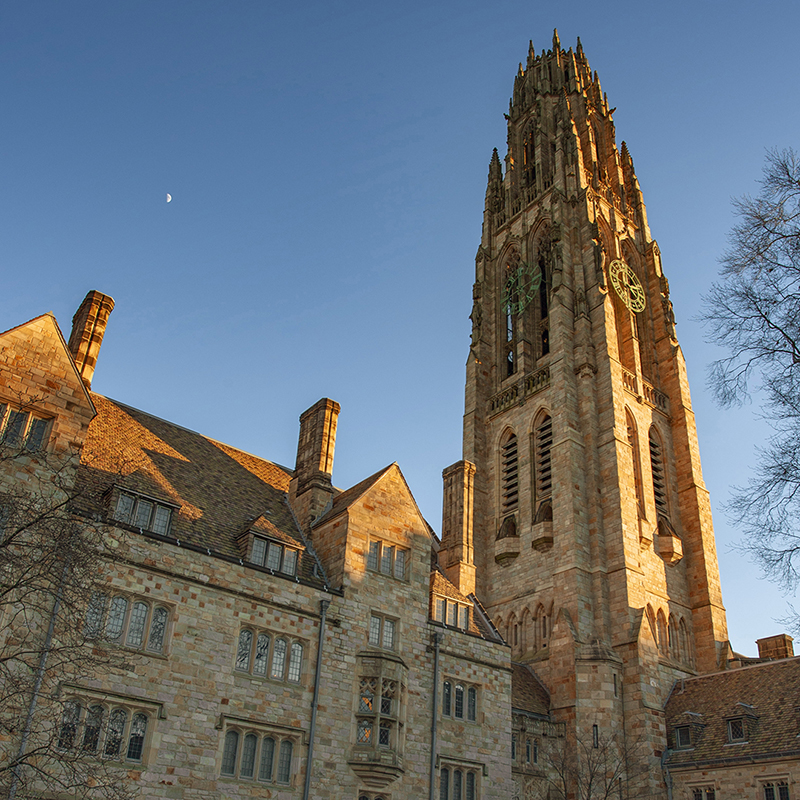I WAS ONE OF THOSE ELITE WINNERS.
我就是精英贏家之一。
IN 1964, I was a bookworm growing up in Far Rockaway, a working-class section of Queens.
1964年時,我還是一個在皇后區(qū)工人階層聚居的法洛克威長大的書蟲。
One day, I read in a biography of John F. Kennedy that he had gone to something called a prep school.
一天,我在約翰·肯尼迪的傳記中讀到,他上過一所預(yù)科學校。
None of my teachers at Junior High School 198 had a clue what that meant,
我198中學的老師都不知道預(yù)科是什么意思,
but I soon figured out that prep school was like college.
但我很快就弄明白了,預(yù)科和大學差不多。
You got to go to classes and live on a campus, only you got to go four years earlier, which seemed like a fine idea.
你要上課,還要住校,只是你得在上大學之前提前四年上這種預(yù)科學校,我感覺這個想法還不錯。
It seemed even better when I discovered that some prep schools offered financial aid.
當我發(fā)現(xiàn)一些預(yù)科學校還提供補助時,感覺就更好了。
I ended up at Deerield Academy, in Western Massachusetts,
最后我去了馬薩諸塞州西部的迪爾菲爾德學院,
where the headmaster, Frank Boyden, told my worried parents, who ran a perpetually struggling liquor store,
校長弗蘭克·博伊登對我憂心忡忡,經(jīng)營著一家生意一直很慘淡的酒水店的父母說,
that his financial aid policy was that they should send him a check every year for whatever they could afford.
他的學校的補助政策是,我父母無論能負擔多少錢,都要每年給他寄一張支票。
Three years later, in 1967, I found myself sitting in the headmaster's office one day
三年后,也就是1967年,我大四那年秋天,我坐在了校長辦公室里,
in the fall of my senior year with a man named R. Inslee Clark Jr., the dean of admissions at Yale.
辦公室里還有一個叫小R.英思利·克拉克的人,他是耶魯大學的招生主任。
Clark looked over my record and asked me a bunch of questions,
克拉克看了我的記錄,問了我一堆問題,
most of which were about where I had grown up and how I had ended up at Deerield.
大部分都是關(guān)于我是在哪里長大的,以及我是怎么到迪爾菲爾德學院的。
Then he paused, looked me in the eye and asked if I really wanted to go to Yale—if it was my first choice.
接著,他停了下來,看著我的眼睛,問我是否真的想去耶魯——耶魯是否是我的第一志愿。
When I said yes, Clark's reply was instant:
我回答說是,克拉克立即說道:
Then I can promise you that you are in.
“那么,我可以向你保證,你被錄取了。
I will tell Mr. Boyden that you don't have to apply anywhere else.
我會通知博伊登先生,你不需要申請其他學校了。

Just kind of keep it to yourself."
請暫時保密。”
What I didn't know then was that I was part of a revolution being led by Clark, whose nickname was Inky.
當時我不知道的是,我已經(jīng)加入了克拉克,外號“印基”,領(lǐng)導(dǎo)的一場革命。
I was about to become one of what would come to be known as Inky's boys and, later, girls.
我即將成為后來被稱為“印基的男孩”,后面也有女孩加入進來,中的一員。
We were part of a meritocracy infusion that flourished at Yale
我們成了60年代中期至70年代耶魯和其他精英教育機構(gòu),
and other elite education institutions, law firms and investment banks in the mid-1960s and '70s.
精英律所以及精英投行圈里盛行的精英教育的一員。
It produced great progress in equalizing opportunity.
這種教育模式促使美國在機會均等方面取得了巨大的進展。
But it had the unintended consequence of entrenching a new aristocracy of rich knowledge workers
但它也在無意之間鞏固了一個由富有知識勞動者組成的新貴階層的地位,
who were much smarter and more driven than the old-boy network of heirs born on third base—
而這些人比那些靠人脈吃飯,明明是含著金鑰匙出生卻以為自己是自力更生發(fā)達起來的繼承者們聰明地多,也有動力得多——
and much more able to enrich and protect the clients who could afford them.
也更能發(fā)展并保護那些負擔得起雇傭他們的客戶。
After college, I went on to Yale Law School and graduated in 1975,
大學畢業(yè)后,我去了耶魯法學院,1975年畢的業(yè),
at a time when demand for lawyers in the flourishing knowledge-worker economy was exploding.
當時,蓬勃發(fā)展的知識型人才經(jīng)濟對律師的需求呈爆炸式增長。
By the mid-1980s, in terms of dollars generated,
到20世紀80年代中期,以創(chuàng)造的美元為單位計算,
the legal industry was bigger than steel or textiles, and about the same size as the auto industry.
法律行業(yè)比鋼鐵或紡織行業(yè)還要打,幾乎趕上了汽車行業(yè)的規(guī)模。
The new lawyers were increasingly concentrated in fast-growing firms that served large corporations
新律師越來越多地集中在快速增長,并以大公司為服務(wù)對象的公司里,
and were prepared to pay skyrocketing salaries to attract the best talent.
而這些公司已經(jīng)做好了為吸引最優(yōu)秀的人才支付飛漲的薪水的準備。
Soon, the gap between pay in the private and public sectors
很快,私營部門和公共部門的薪酬差距就已經(jīng)大到
was too large to attract enough talented young lawyers to government or public-interest law—
政府和公益法領(lǐng)域無法吸引足夠多有才華的年輕律師的地步——
a change described by Stanford law professor Robert Gordon in 1988 as "one of the most antisocial acts of the bar in recent history."
1988年,斯坦福大學法學教授羅伯特·戈登將這一變化描述為“近年來律師行業(yè)最反社會的現(xiàn)象之一”。
譯文由可可原創(chuàng),僅供學習交流使用,未經(jīng)許可請勿轉(zhuǎn)載。


